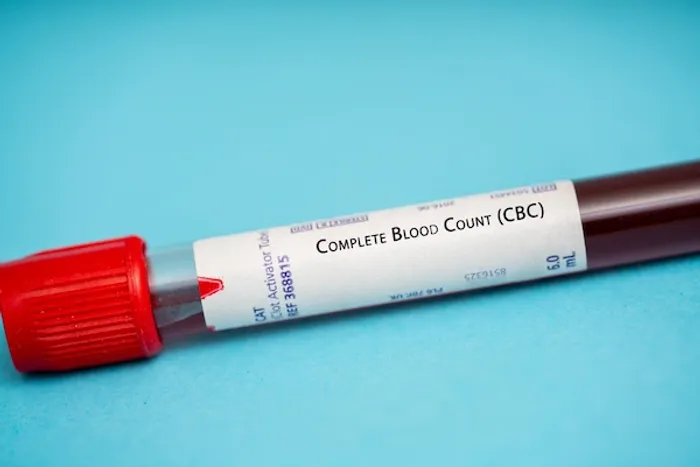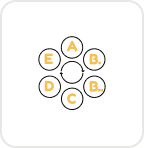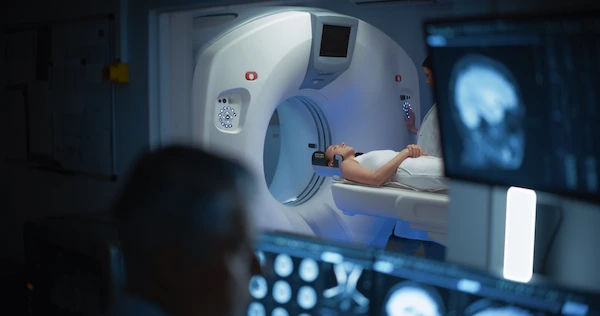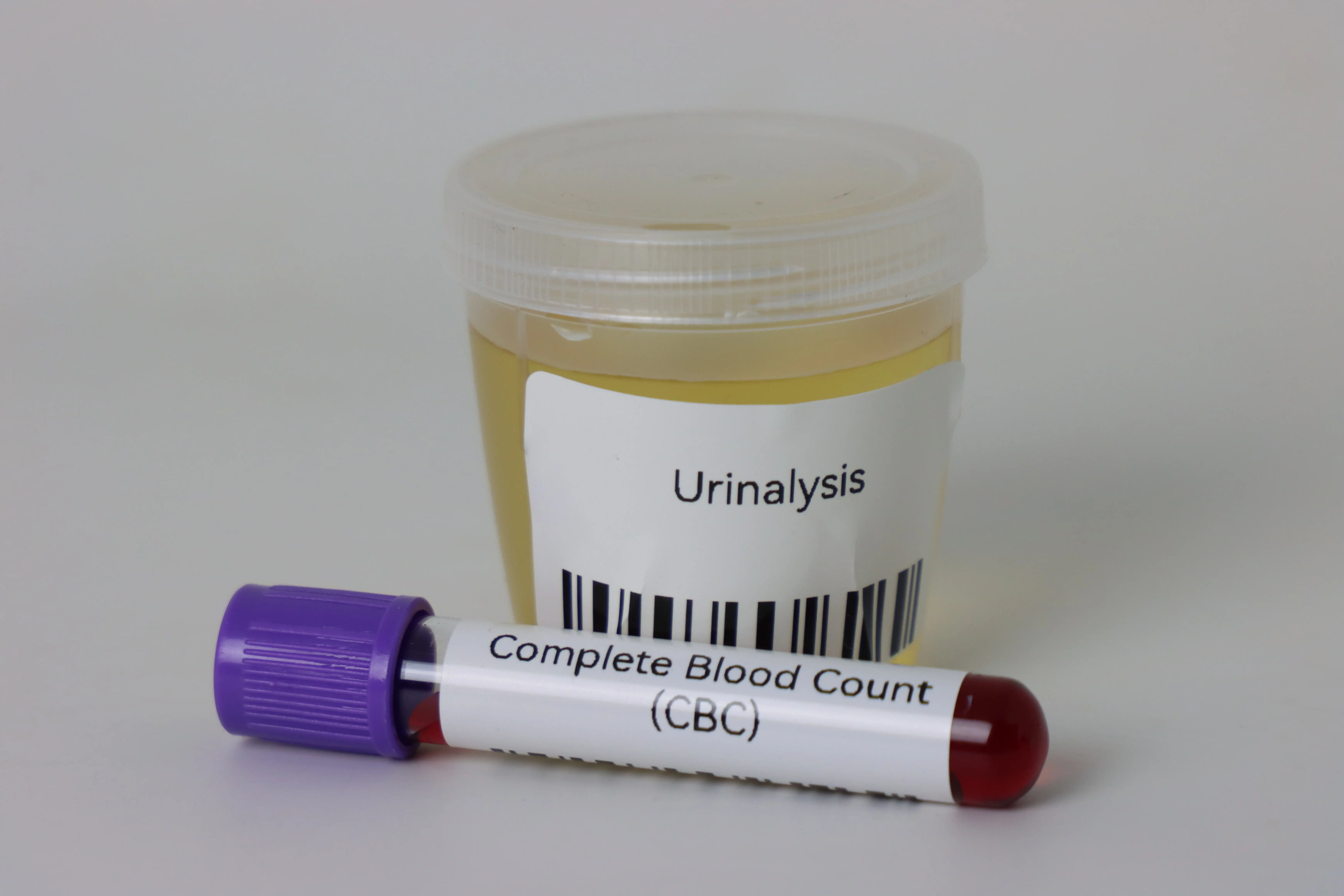Feeling Weak or Pale? The CBC Test Can Reveal the Reason
Know how CBC reveals iron deficiency, other reasons for pale appearance, types of anaemia, and lifestyle tips for healthy living.

Written by Dr. Shaik Abdul Kalam
Reviewed by Dr. Shaik Abdul Kalam MD (Physician)
Last updated on 9th Sep, 2025

Have you been feeling unusually tired lately? Noticed you look a bit paler in the mirror or get dizzy when standing up? These could be signs of something more than just stress or lack of sleep. Many women and teenage girls experience persistent fatigue or pallor due to underlying blood-related conditions like anaemia.
The good news? A simple test known as the CBC (Complete Blood Count) can reveal what’s going on inside your body. In this comprehensive guide, we’ll explore how a weakness blood test like the CBC helps diagnose causes of low energy, paleness, and iron deficiency.
We’ll explain how it works, why it's especially important for women and teens, and when you should get tested. We’ll also recommend useful anaemia CBC test panels available on Apollo 24|7 to help you take control of your health.
What Is a CBC Test and Why Is It Done?
A CBC (Complete Blood Count) is one of the most commonly prescribed blood tests because it provides vital information about your overall health. It measures the levels and characteristics of the three major types of blood cells:
- Red Blood Cells (RBCs): Carry oxygen to tissues
- White Blood Cells (WBCs): Fight infections
- Platelets: Help in blood clotting
But for someone feeling weak or pale, the focus is usually on red blood cells and haemoglobin, the oxygen-carrying protein. Low levels of these can suggest anaemia, a condition in which your body doesn’t have enough healthy red blood cells to carry adequate oxygen to tissues.
Why Women and Teens Are More at Risk of Anaemia?
Anaemia affects a significant number of women and adolescent girls in India. Several reasons explain why these groups are more vulnerable:
- Menstrual blood loss: Monthly periods can deplete iron stores over time, especially with heavy bleeding.
- Iron-deficient diet: Many young women consume insufficient iron-rich foods such as leafy greens, legumes, or meat.
- Rapid growth in teens: Adolescence is a period of increased demand for nutrients like iron and folic acid.
Pregnancy and lactation: In adult women, the need for iron increases dramatically during pregnancy and breastfeeding.
That’s why checking blood parameters through an anaemia CBC test is crucial for early detection and correction.
Signs You Might Need a Weakness Blood Test
You should consider a CBC blood test if you experience:
- Constant fatigue or exhaustion, even after rest
- Dizziness or light-headedness
- Pale skin, lips, or nail beds
- Shortness of breath on minimal exertion
- Rapid heartbeat or palpitations
- Poor concentration or brain fog
- Headaches or irritability
- Brittle nails or hair fall
These are classic symptoms of anaemia, especially iron deficiency anaemia.
Get These Tests To See If You’re Anaemia
How the CBC Test Helps Diagnose Anaemia and Other Causes of Weakness?
Let’s break down the key components of a CBC report and what each reveals:
1. Haemoglobin (Hb)
Measures the amount of oxygen-carrying protein in your red blood cells.
- Low haemoglobin directly indicates anaemia.
- Reference range for women: 12.0–15.5 g/dL
- Reference range for teens (female): 11.5–15.0 g/dL
2. Red Blood Cell Count (RBC)
- Shows the number of red blood cells in your blood.
- A low RBC count also points toward anaemia.
3. Haematocrit (HCT)
- Percentage of blood volume made up by red blood cells.
- Low values suggest reduced oxygen-carrying capacity.
4. MCV (Mean Corpuscular Volume)
Indicates the size of red blood cells.
- Low MCV = microcytic anaemia (often due to iron deficiency)
- High MCV = macrocytic anaemia (may suggest B12 or folate deficiency)
5. MCH & MCHC
- Reflect on how much haemoglobin each red blood cell contains.
- Help distinguish between different types of anaemia.
6. RDW (Red Cell Distribution Width)
- Shows variation in red cell sizes.
- A high RDW means mixed-size red cells, often seen in nutritional anaemias.
Types of Anaemia Detected by a CBC Test
A CBC test can help your doctor identify the likely cause of anaemia:
If your results suggest anaemia, your doctor may follow up with iron studies, B12, and folate tests.
When Should You Take a CBC Test?
You don’t have to wait until you faint from fatigue. A CBC test should be considered if:
- You experience prolonged weakness or tiredness
- You look pale or feel cold frequently
- Your menstrual periods are abnormally heavy
- You are a teen with poor concentration or mood swings
- You are planning a pregnancy or are currently pregnant
- You have a family history of anaemia or nutritional deficiencies
Benefits of Early Diagnosis Through a CBC Test
Getting tested early helps you:
- Prevent complications like heart strain or developmental delays (in teens)
- Get the right treatment, e.g., iron tablets or dietary changes
- Monitor recovery after starting supplements
- Avoid unnecessary fatigue, especially during academic or professional pursuits
Top CBC Test Packages on Apollo 24|7 for Weakness and Anaemia
Apollo 24|7 offers various lab test packages designed for diagnosing fatigue, anaemia, and related conditions. Some useful options include:
1. CBC - Complete Blood Count
- Ideal first-line test for weakness, fatigue, paleness
- Checks haemoglobin, red cells, white cells, and platelets
- No fasting required
- Suitable for: teens, menstruating women, and general screening.
Book a CBC-Complete Blood Count
2. Apollo Anaemia Profile
- Includes CBC, iron studies (Iron, TIBC), and more
- Helps diagnose iron-deficiency anaemia
- Great for: heavy periods, vegetarian teens, pale appearance
Book an Apollo Anaemia Profile
3. Iron Studies Test
- Checks serum iron, ferritin, and transferrin
- Use CBC for deeper insight into iron deficiency
- Recommended if CBC shows low MCV or Hb
4. Vitamin B12 & Folate Test
- Detects macrocytic anaemia
- Especially useful for vegetarian or vegan individuals
Book a Vitamin B12 & Folate Test
Preparing for the Test
Getting ready for a CBC test is usually straightforward, but following a few simple steps can help ensure accurate results and a smooth experience. Here are some key things to keep in mind:
- Fasting is not required for a standard CBC test.
- If undergoing iron studies or a full anaemia profile, you may be asked to fast for 8 to 10 hours.
- Inform your doctor about any medications or supplements you're taking, as they could influence test results.
- Drink plenty of water beforehand to stay hydrated. This helps make blood collection easier and more comfortable.
What to Do After Receiving the Test Results?
Here’s how to proceed after your weakness blood test:
- Consult a doctor: Never self-diagnose. Lab values need clinical correlation.
- Follow treatment: If you are anaemic, treatment may include oral iron, vitamin B12, or folic acid.
- Improve your diet: Include iron-rich foods: spinach, beets, dates, lentils, and meat.
- Monitor progress: Repeat your CBC test after 1 to 2 months to assess recovery.
- Address underlying issues: Heavy menstruation or poor absorption may need additional attention.
How to Prevent Iron-Deficiency Anaemia in Women and Teens?
Iron deficiency anaemia is especially common among women and adolescent girls due to factors like menstruation, growth spurts, and dietary gaps. The good news? With a few simple lifestyle and dietary changes, it’s completely preventable. Here are key steps to reduce your risk:
- Eat a balanced diet: Include iron-rich foods such as leafy greens, lentils, red meat, eggs, and fortified cereals, along with vitamin B12 and folate.
- Boost iron absorption with vitamin C: Pair iron-rich meals with foods like oranges, lemons, tomatoes, or bell peppers.
- Avoid tea or coffee immediately after meals: These beverages can interfere with your body’s ability to absorb iron.
- Increase iron intake during periods: To compensate for blood loss, consume more iron-rich foods or supplements as advised by your doctor.
- Get annual CBC screenings: If you’ve experienced anaemia before, regular blood checks help catch it early and prevent recurrence.
Conclusion
Fatigue, dizziness, or looking pale can feel normal during a busy life, but they shouldn’t be ignored, especially by women and teens, who are more prone to iron and haemoglobin-related issues.
A simple CBC blood test can reveal the root cause and guide you to the right treatment, restoring your energy and well-being. If you or your teenage daughter is feeling low on energy, now is the time to act. Early diagnosis is key. Choose a CBC or anaemia CBC test panel from a trusted provider like Apollo 24|7 and take the first step toward better health. Don’t ignore the signs your body is giving you. Get tested, get treated, and get back to feeling your best.






